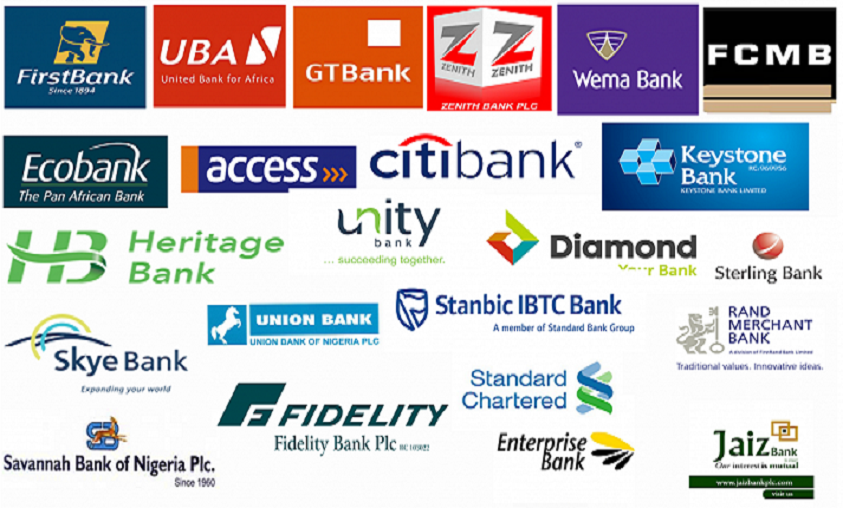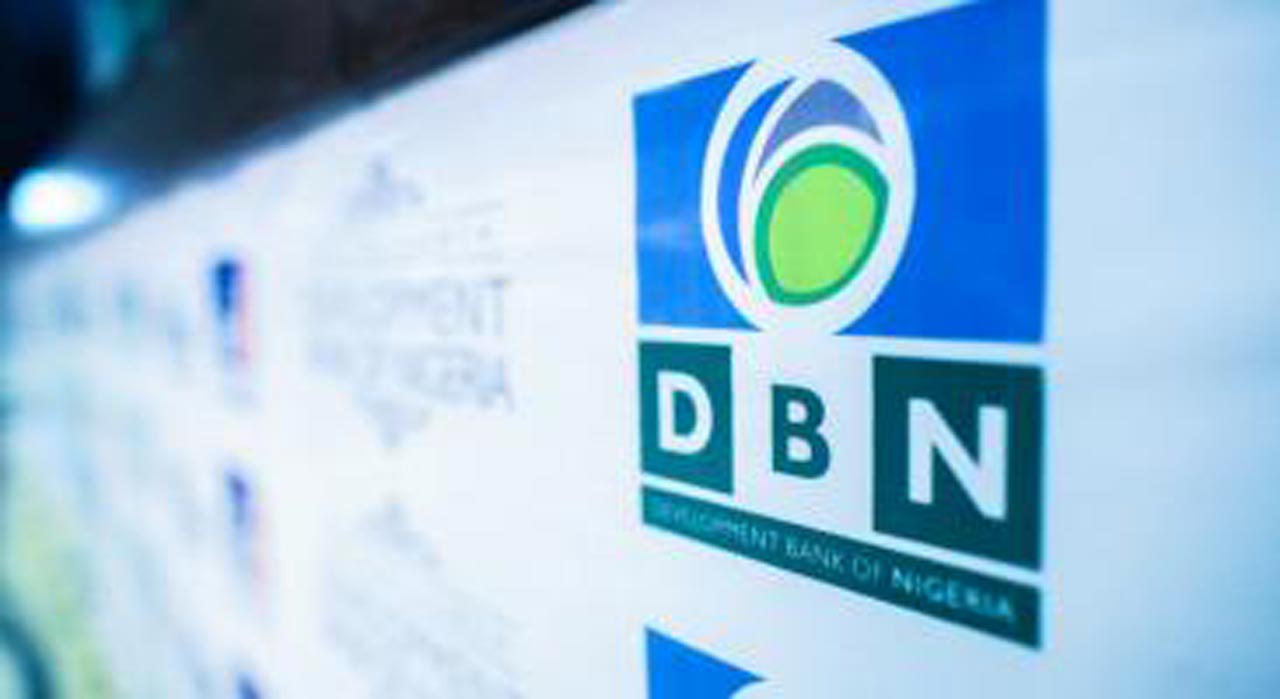Banking
Investors Expect Better Returns as Banks Release 2017 Earnings This Month

By Dipo Olowookere
The year 2016 was a very challenging for businesses operating in Nigeria because the economy was in recession.
This had its toll on companies, especially those listed on the Nigerian Stock Exchange (NSE), making some of them to declare loss in their 2016 financial results.
As a result of the loss or drop in profit margins, some shareholders and investors did not get much from their investment in the firms.
But a new report by Bloomberg has disclosed that the 2017 earnings of companies quoted on the local bourse, especially banks, will have improved earnings in the 2017 financial statements, which are expected to trickle in from this month.
The anticipated better earnings would be boosted by the recovery of the nation’s economy, which grew last year by 0.83 percent, according to data released this week by the National Bureau of Statistics (NBS).
Bloomberg said an improvement in unpaid loans, higher interest income from holding government debt and a rise in profit will have helped lenders bolster their capital buffers, going by Renaissance Capital analysts including Olamipo Ogunsanya and Ilan Stermer.
The gross domestic product of Africa’s largest oil producer expanded for three straight quarters last year after a 1.6 percent contraction in 2016, with year-on-year growth reaching 1.9 percent in the final three months of 2017. An increase in crude prices and the introduction of a new foreign-exchange system that ended a crippling shortage of dollars helped attract more investment flows into the country, while improving liquidity for the nation’s lenders.
Here’s a closer look at some of the major drivers and points of interest that investors will keep an eye on as they assess the outlook for banks.
Yield Benefit
Record high interest rates of 14 percent since July 2016 means there is no shortage of yield for banks, many of which parked their funds to profit from the safety of Treasury bills and other fixed-income securities rather than lending, where there is more risk.
A drop in those yields from record highs in August means that 2018 will be more challenging for lenders, despite the positive macro backdrop, according to Ogunsanya and Stermer. Volatility in foreign-exchange related gains, limited scope for cost efficiencies and rising political risks before elections in early 2019 also cloud the outlook for this year, the RenCap analysts said.
Lenders Lending
Banks will be able to close the revenue gap created by declining interest rates by lending more into a strengthening economy, according to Stanbic IBTC Holdings Plc analyst Muyiwa Oni. Some banks may boost loan growth to 15 percent this year compared with 10 percent in 2017, he said.
“Credit growth will be a big driver” in 2018, Oni said. While lower rates may reduce the cost of funding for banks, net interest margins may still narrow by anything from 100 basis points to 200 basis points this year, he said.
Fewer Sour Loans
The recession in 2016 hampered the ability of companies to meet their obligations to lenders, prompting a surge in bad debts. Non-performing loans as a percentage of overall credit peaked at 26 percent for FBN Holdings Plc, the country’s largest lender by revenue. NPLs will continue to trend downward after improving to 20 percent in the nine months through September, Adesola Adeduntan, the chief executive officer of FBN’s First Bank of Nigeria, said on Feb. 22.
An improvement in operating conditions, the restructuring of loans, recoveries and some write-offs will see the pace of unpaid loans ease into 2018, Fitch Ratings said in October.
Capital Challenges
At least three small- to medium-sized banks will run into difficulties with their capital levels this year and will need to raise cash, said Robert Omotunde, the head of investment research at Afrinvest West Africa Ltd., without naming the lenders. “A lot of tier two banks have issues with NPLs and it’s eating into their capital buffers.”
Stanbic IBTC’s Oni predicts that the capital adequacy ratio across the industry will probably drop by 100 to 200 basis points, mainly because of the introduction of IFRS 9 reporting standards, which will require higher provisioning.
Bigger lenders including Zenith Bank Plc, United Bank for Africa Plc and Access Bank Plc were able to raise funding in the Eurobond market last year, while smaller ones struggled to boost their buffers. Stress tests showed that the capital adequacy ratio across the banking industry worsened to 12.8 percent in April from 13.6 percent in February, according to the central bank.
Taking Stock
There is still some room for shares to rally even after the Nigerian Stock Exchange Banking 10 Index surged by a record 73 percent in 2017, according to Lekan Olabode, a bank analyst at Vetiva Capital Management Ltd. in Lagos, although the pace won’t match that seen last year. Smaller lenders may also show faster earnings growth and biggest share-price gains.
“The banking sector is significantly undervalued,” he said. “This year, it is the small banks that we expect to do more.”
Banking
Access Bank Opens Branch in Malta to Strengthen Europe-Africa Trade Ties

By Modupe Gbadeyanka
To strengthen Europe-Africa trade ties, Access Bank has opened a new branch in Malta. It will focus on international trade finance, employing approximately 30 people in its initial phase, with plans for controlled expansion over time.
It was learned that this Maltese branch was established by Access Bank UK Limited, the subsidiary of Access Bank Plc, which is also the subsidiary of Access Holdings Plc, which is listed on the Nigerian Exchange (NGX) Limited.
Access Bank Malta Limited commenced operations after obtaining a banking licence from the European Central Bank (ECB) and the Malta Financial Services Authority (MFSA).
Access Bank said the licence marks a transformative milestone in bolstering Europe-Africa trade flows.
Malta, a renowned international financial centre, and a gateway between the two continents, is strategically positioned to play a pivotal role in advancing commerce and fostering economic partnerships.
This strategic expansion into Malta enables The Access Bank UK Limited to leverage growing trade opportunities between Europe and Africa.
It underscores the organisation’s commitment to driving global trade, financial integration, and supporting businesses across these regions.
“By establishing operations in Malta, we will gain a foothold in a market that bridges European and North African economies, moving us one step closer to our goal of becoming Africa’s Gateway to the World.
“It further enhances our bank’s capacity to support clients with innovative solutions tailored to cross-border trade and investment opportunities,” the chief executive of Access Bank, Mr Roosevelt Ogbonna, stated.
“Europe has emerged as Africa’s leading trading partner, driven by initiatives such as the Economic Partnership Agreements between the EU and African regions and the African Continental Free Trade Area (AfCFTA).
“With Europe-Africa economic relations entering a new phase, The Access Bank Malta Limited is ideally positioned to deepen trade and meet the financing and banking needs of our clients in these expanding markets,” the chief executive of Access Bank UK, Mr Jamie Simmonds, commented.
Also speaking, the chief executive of Access Bank Malta, Renald Theuma, said, “Malta is uniquely positioned as a bridge between Europe and Africa, making it an ideal location for our subsidiary. This move allows The Access Bank Malta Limited to engage more closely with customers in Europe and deliver tailored financial solutions that drive growth and connectivity across both continents.”
Banking
Goldman Sachs, IFC Partner Zenith Bank, Stanbic IBTC, Others to Empower Women Entrepreneurs

By Adedapo Adesanya
The International Finance Corporation (IFC) and Goldman Sachs have announced a new partnership with African banks, including Nigeria’s Zenith Bank and Stanbic IBTC Nigeria to support the Goldman Sachs 10,000 Women initiative, a joint programme launched in 2008 to provide access to capital and training for women entrepreneurs globally.
The two Nigerian banks are part of nine financial institutions from across Africa which have agreed to join the 10,000 Women initiative committing to leverage the business education and skills tools the programme provides to create more opportunities for women entrepreneurs across the continent by providing access to business education.
Others banks include Stanbic Bank Kenya, Ecobank Kenya, Ecobank Cote d’Ivoire, Equity Bank Group, Banco Millenium Atlantico – Angola, Baobab Group, and Orange Bank.
Speaking on this, Ms Charlotte Keenan, Managing Director at Goldman Sachs said – “10,000 Women has had a powerful impact to date, but we know that there are more women to reach and more potential to be realized.
“We are delighted to partner with IFC to supercharge the growth of women-owned businesses across Africa, and mainstream lending to female business leaders. We remain committed to supporting entrepreneurs with the access to education and capital that they need to scale.”
Since 2008, the 10,000 Women initiative has provided access to capital and business training to more than 200,000 women in 150 countries.
“This expanded initiative marks a significant step forward in creating equitable economic opportunities for women in Africa, enabling them to build stronger, more resilient businesses and to realize their entrepreneurial goals,” said Ms Nathalie Kouassi Akon, IFC’s Global Director for Gender and Economic Inclusion.
Goldman Sachs’ 10,000 Women initiative complements the Women Entrepreneurs Opportunity Facility (WEOF), launched in 2014 by Goldman Sachs and IFC as the first-of-its-kind global facility dedicated to expanding access to capital for women entrepreneurs in emerging markets.
Banking
Development Bank of Nigeria Wins Financial Inclusion Leadership Award

By Aduragbemi Omiyale
In recognition of its unwavering commitment to fostering access to financing for Nigerian micro, small and medium enterprises (MSMEs), Development Bank of Nigeria Plc has been rewarded with the Financial Inclusion Leadership Award at the Champions of Inclusion Nigeria Financial Inclusion Awards.
This was at the 2024 International Financial Inclusion Conference (IFIC) organised by the Central Bank of Nigeria (CBN) in collaboration with the World Bank and other stakeholders.
The chief executive of the lender, Mr Tony Okpanachi, said the recognition affirms the company’s efforts in expanding access to financial services for MSMEs in Nigeria.
“We are honoured to receive the Financial Inclusion Leadership Award, which is a testament to our bank’s commitment to expanding access to financial services for all Nigerians. This award recognises our efforts to bridge the financial inclusion gap, particularly for a priority sector like the MSMEs.
“Additionally, this award is a validation of our strategic focus on driving financial inclusion for small businesses, and we are proud to be at the forefront of this initiative that drives that. We will continue to innovate and expand our financial inclusion programmes, ensuring that more Nigerian small and startup businesses have access to services,” he stated.
On his part, the Chief Operating Officer of DBN, Mr Bonaventure Okhaimo, said the accolade demonstrates the firm’s dedication to driving financial inclusion and economic growth in Nigeria.
“This award acknowledges our Bank’s innovative approach to widening opportunities for MSMEs in Nigeria to grow and scale their businesses,” he said.
“This award will motivate us to continue pushing the boundaries of financial inclusion, exploring more innovative solutions and partnerships to expand our reach and impact.
“We are committed to ensuring that more small businesses and startup enterprises in Nigeria have access to financial services, this award will further inspire us to accelerate our efforts in this regard,” he stated.
-

 Feature/OPED5 years ago
Feature/OPED5 years agoDavos was Different this year
-
Travel/Tourism8 years ago
Lagos Seals Western Lodge Hotel In Ikorodu
-

 Showbiz2 years ago
Showbiz2 years agoEstranged Lover Releases Videos of Empress Njamah Bathing
-

 Banking6 years ago
Banking6 years agoSort Codes of GTBank Branches in Nigeria
-

 Economy2 years ago
Economy2 years agoSubsidy Removal: CNG at N130 Per Litre Cheaper Than Petrol—IPMAN
-

 Banking2 years ago
Banking2 years agoFirst Bank Announces Planned Downtime
-

 Sports2 years ago
Sports2 years agoHighest Paid Nigerian Footballer – How Much Do Nigerian Footballers Earn
-

 Technology4 years ago
Technology4 years agoHow To Link Your MTN, Airtel, Glo, 9mobile Lines to NIN












